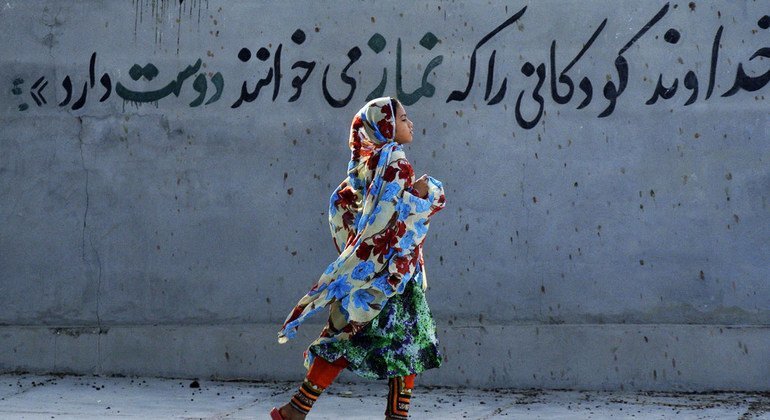UN independent human rights experts on Thursday strongly condemned the death of 22-year-old Mahsa Amini, who died in police custody following her arrest for allegedly failing to comply with Iran’s strict rules on women’s dress, by wearing what authorities said was “an improper hijab”.
“We are shocked and deeply saddened by the death of Ms Amini,” they said in a statement.
“She is another victim of Iran’s sustained repression and systematic discrimination against women and the imposition of discriminatory dress codes that deprive women of bodily autonomy and the freedoms of opinion, expression and belief”, the experts added.
Stop lethal force
The experts also denounced violence by Iranian security forces directed against peaceful protesters and human rights defenders in cities across the country, who have been marching and demanding accountability for Ms. Amini’s death.
They urged the Iranian authorities to avoid further unnecessary violence and to immediately stop the use of lethal force in policing peaceful assemblies.
Arrest by ‘morality police’
Ms. Amini was arrested by Iran’s morality police on 13 September, and according to news reports, was badly beaten while being taken into custody, which Iranian authorities have denied, claiming instead, that she died of a heart attack.
She reportedly fell into a coma at the Vozara Detention Centre and died in hospital on Friday, 16 September.
“We strongly condemn the use of physical violence against women and the denial of fundamental human dignity when enforcing compulsory hijab policies ordained by State authorities,” the experts said.
“We call on the Iranian authorities to hold an independent, impartial, and prompt investigation into Ms Amini’s death, make the findings of the investigation public and hold all perpetrators accountable”.
Uniting for women
Since Friday, thousands have taken to the streets in cities throughout Iran – including Tehran, Ilam, Isfahan, Kermanshah, Mahabad, Saqez, Sanandaj, Sari and Tabriz – to demand accountability for the young woman’s death and demanding an end to violence and discrimination against women in Iran, particularly their compulsory veiling.
The peaceful protests have been met with excessive use of force, including birdshot and other metal pellets fired by Iranian security forces, the experts said.
According to news reports, at least eight people, including a woman and a 16-year-old, have been killed during the protests, with dozens more injured and multiple arrests by security forces.
Authorities cut power
Since Monday, prolonged internet disruptions have been reported in Tehran, Kurdistan provinces, and other parts of Iran – the third widespread internet shutdown recorded there over the past 12 months.
“Disruptions to the internet are usually part of a larger effort to stifle the free expression and association of the Iranian population, and to curtail ongoing protests.
“State mandated internet disruptions cannot be justified under any circumstances,” the experts said, warning against a further escalation of crackdown against civil society, human rights defenders and peaceful protesters.
They pointed out that over the past four decades, “Iranian women have continued to peacefully protest against the compulsory hijab rules and the violations of their fundamental human rights” and urged the authorities to heed their legitimate fundamental human rights demands.
“Iran must repeal all legislation and policies that discriminate on the grounds of sex and gender, in line with international human rights standards,” the independent experts underscored.
The experts
Special Rapporteurs and independent experts are part of what is known as the Special Procedures.
They are appointed by the Geneva-based UN Human Rights Council to examine and report back on a specific human rights theme or a country situation. The positions are honorary and the experts are not paid for their work.
Click here for the names of the experts who signed onto this statement.

